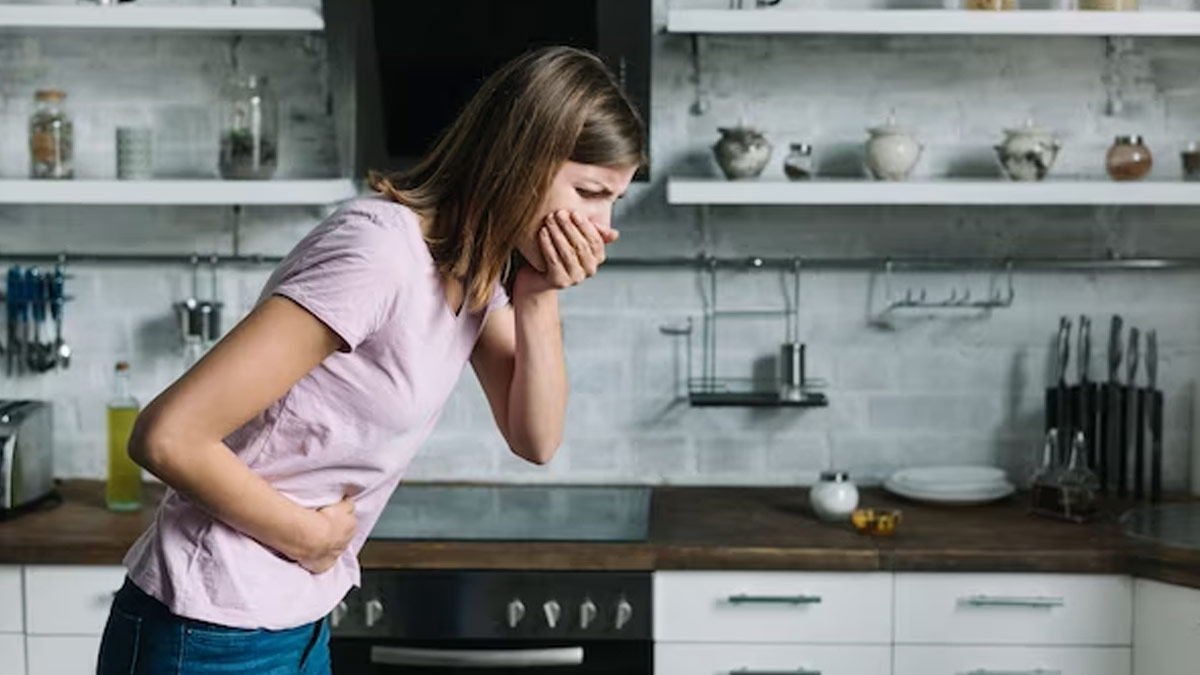
Recovering from food poisoning can be a challenging journey, both physically and mentally. After enduring the discomfort of vomiting, diarrhoea, and stomach cramps, your body needs time to heal and regain its strength. One of the most crucial aspects of recovery is gradually reintroducing food into your diet in a way that is gentle on your sensitive stomach while providing the essential nutrients your body needs to recover fully.
Table of Content:-
What to Eat Right After A Bad Food Poisoning
We asked our expert Dr Bhumesh Tyagi, General Physician, Sharda Hospital for a guide on what to eat right after experiencing a bout of food poisoning. Here is what he shared with us.
1. Clear Liquids
As you begin to recover from food poisoning, it's essential to prioritise hydration. Clear liquids such as herbal teas, electrolyte drinks, and clear broths can help replenish fluids lost through vomiting and diarrhoea. These beverages also help restore electrolyte balance in your body, which is crucial for proper functioning. Sip on these liquids slowly throughout the day to prevent dehydration and support your body's recovery process.
2. Ginger
Ginger has long been known for its ability to ease nausea and settle an upset stomach. Consider incorporating ginger into your diet in the form of ginger tea or ginger ale. The natural compounds in ginger can help soothe inflammation in the digestive tract and promote gastrointestinal comfort. Opt for beverages that contain real ginger and avoid those with added sugars or artificial flavours.

Also Read: 72-Hour Fruit Diet: Expert Shares Pros, Cons, and Potential Risks
3. Plain White Rice
When you're ready to start reintroducing solid foods, plain white rice is an excellent option. It's easy to digest and provides a source of quickly absorbed carbohydrates to fuel your body's recovery efforts. Avoid adding strong spices or sauces to your rice, as these may irritate your stomach further. Keep it simple and stick to plain, well-cooked rice until your digestive system has fully recovered.
4. Boiled Potatoes
Another gentle and easily digestible food option is boiled potatoes. Potatoes are a good source of essential carbohydrates and can provide a satisfying source of energy as you recover from food poisoning. Be sure to cook the potatoes thoroughly and avoid adding butter or heavy seasonings. Opt for plain boiled potatoes to minimise stress on your digestive system and promote healing.

5. Small, Frequent Meals
Instead of overwhelming your stomach with large meals, aim to eat small, frequent meals throughout the day. This approach gives your digestive system a chance to adjust gradually and reduces the risk of overloading your stomach. Focus on eating bland, easily digestible foods such as plain toast, crackers, bananas, and boiled vegetables. Listen to your body's cues and stop eating if you start to feel uncomfortable or experience any symptoms of discomfort.
Also Read: Is There a Link Between Lack of Sleep and Bad Mood? Know What Our Expert Revealed
6. Avoid Dairy and Fatty Foods
While you're recovering from food poisoning, it's best to steer clear of dairy products and fatty foods. These foods can be more difficult for your stomach to digest and may exacerbate symptoms such as bloating, cramping, and diarrhoea. Opt for low-fat, easily digestible alternatives such as rice milk or almond milk if you need to satisfy your craving for dairy. Likewise, choose lean sources of protein such as boiled chicken or tofu instead of fatty meats.
A Final Word
Recovering from food poisoning requires patience, gentle care, and a focus on nourishing your body with easily digestible foods and plenty of fluids. By following these guidelines and gradually reintroducing food into your diet, you can support your body's natural healing process and bounce back from food poisoning more quickly. Remember to listen to your body's cues, take things slowly, and prioritise rest and hydration as you recover. If symptoms persist or worsen, be sure to seek medical attention promptly.
Also watch this video
How we keep this article up to date:
We work with experts and keep a close eye on the latest in health and wellness. Whenever there is a new research or helpful information, we update our articles with accurate and useful advice.
Current Version